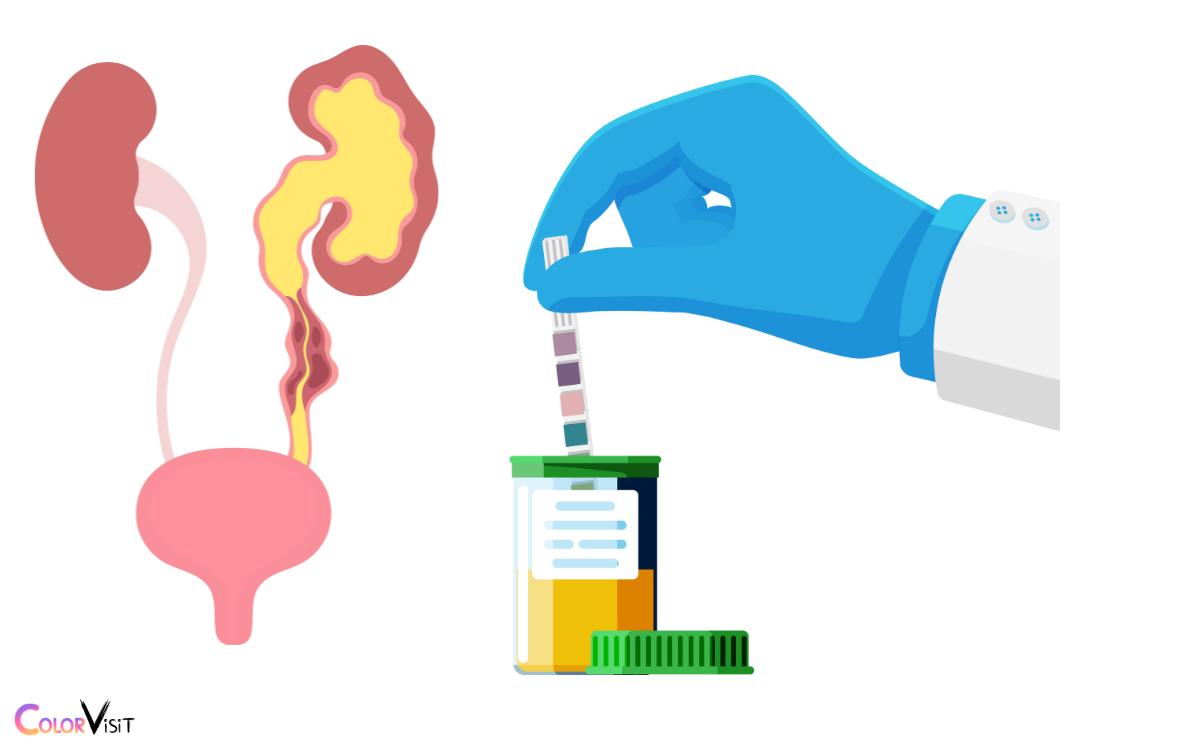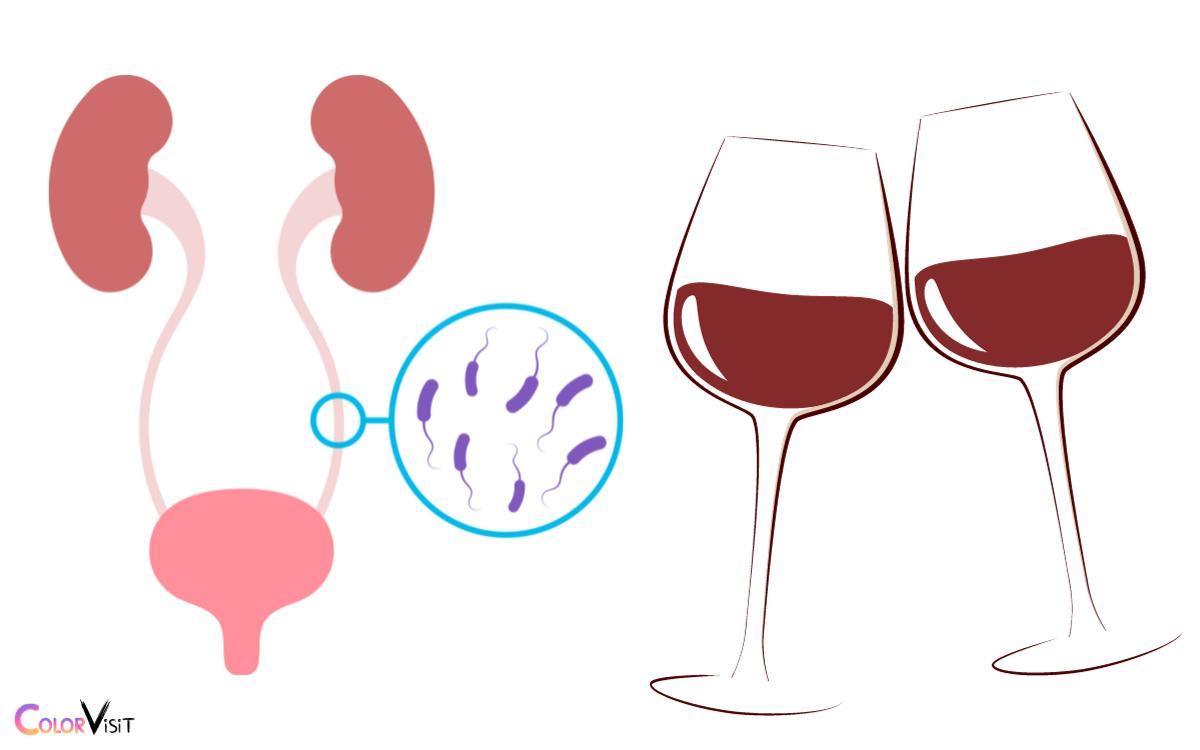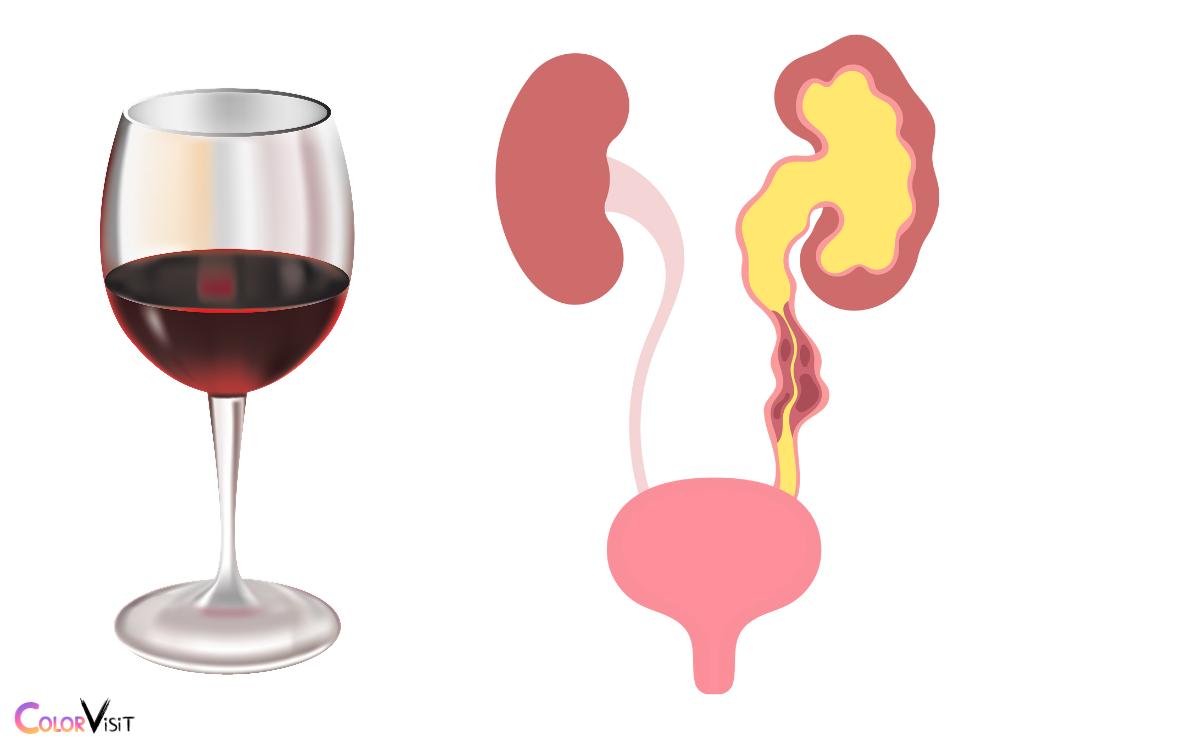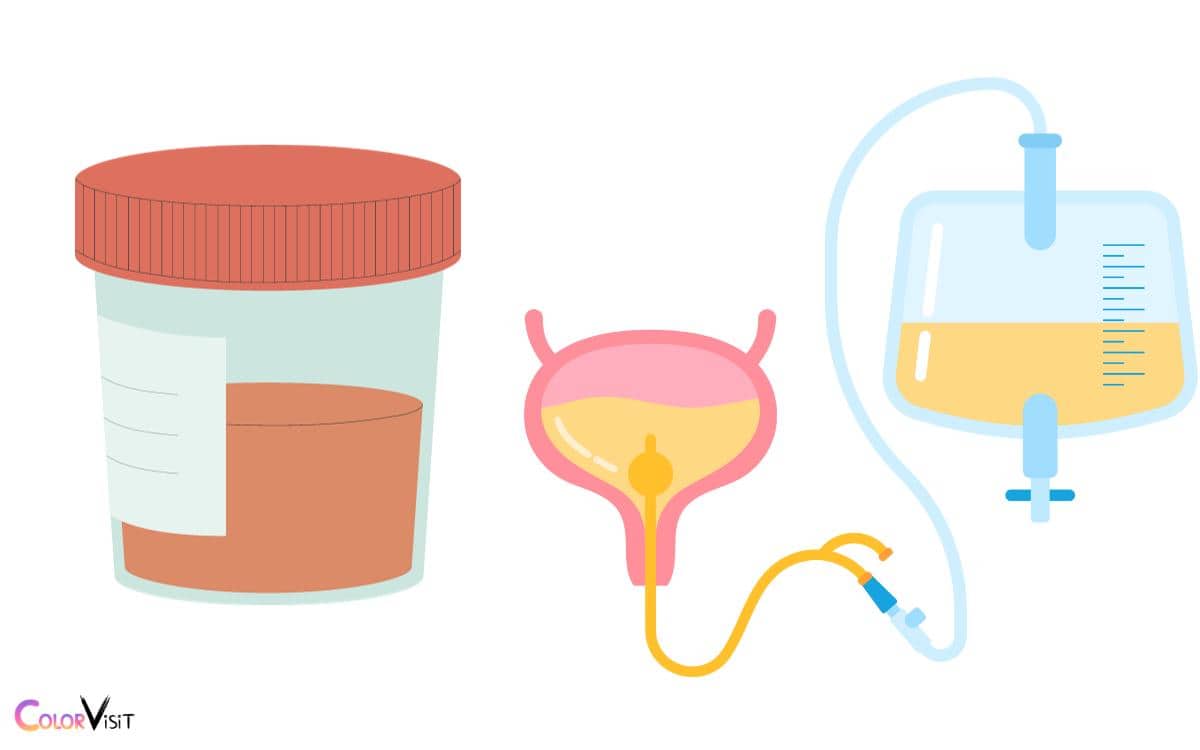Can Red Wine Change the Color of Your Urine? No!
No, red wine cannot directly change the color of your urine. Your urine color is mainly influenced by your hydration level and what you eat.
Anthocyanins are pigments found in various fruits, including grapes used in red wine production.
These pigments are known to pass through the body and can alter the color of your urine to a darker or even red hue.
This is a normal process and shouldn’t be a cause for concern, unless it persists even after refraining from red wine.
For example, if you consume a large quantity of red wine, you might observe a noticeable change in your urine color.
However, it should return to its normal color once the anthocyanins have been fully excreted from your body.
Key Takeaway
The Science Behind Red Wine and Urine Color
The phenomenon of red wine altering urine color can be attributed to the presence of specific compounds in the wine.
- Red wine contains pigmented molecules known as anthocyanins, which are responsible for its red color.
- When these molecules are metabolized in the body, they can impart a subtle change in the color of urine, often giving it a pinkish hue.
- The presence of tannins in red wine can also contribute to this effect. Tannins are a group of compounds that can impact the body’s metabolism and potentially lead to changes in urine color.
- It’s important to note that this discoloration is typically harmless and temporary.
- However, if there are concerns about urine color changes, consulting a healthcare professional is advisable for further evaluation.
Understanding the science behind this phenomenon can provide valuable insight for individuals who may experience this occurrence after consuming red wine.
Factors Influencing Urine Color Change
Factors influencing the change in urine color after consuming red wine can be attributed to various physiological and chemical processes within the body.
- The color of urine is primarily influenced by the presence of pigments such as urochrome, which gives urine its yellow color.
- However, the consumption of red wine, particularly in larger quantities, can lead to the excretion of certain pigments and metabolites that can temporarily alter the color of urine.
- Factors such as hydration levels, individual metabolism, and the presence of certain medical conditions can also play a role in the color changes observed in urine after consuming red wine.
Understanding these factors is crucial in interpreting urine color changes accurately and can provide valuable insights into one’s overall health and hydration status.
Health Implications of Red Wine Urine Color
After considering the influence of red wine consumption on urine color, it is important to evaluate the potential health implications associated with these color changes.
- While red or pink urine after consuming red wine is often harmless and temporary, it can also be indicative of an underlying health issue.
- In some cases, it may be a sign of hematuria, which is the presence of red blood cells in the urine and could be related to kidney stones, urinary tract infections, or other kidney issues.
- Therefore, it is crucial for individuals experiencing persistent changes in urine color after red wine consumption to consult a healthcare professional for proper evaluation and diagnosis.
Monitoring urine color alongside other symptoms can provide valuable insights into one’s health status and prompt appropriate medical attention if necessary.
Tips for Managing Red Wine Urine Color
To manage red wine urine color, it is essential to drink plenty of water before and after consuming red wine.
- Hydration helps dilute the pigments in red wine, reducing the intensity of the color in urine.
- Consuming water helps flush out the pigments from the body, potentially minimizing the impact on urine color.
- Another tip is to consider consuming lighter-colored or white wines, which are less likely to cause intense color changes in urine.
- ome individuals may find that consuming red wine in moderation, along with a balanced diet richS in fruits and vegetables, can help mitigate the effects on urine color.
However, if the urine color change persists or is accompanied by other concerning symptoms, it is important to seek medical advice promptly.
Can Other Colors of Wine Change the Color of Your Urine?
Drinking drying reds and other colors of wine can potentially alter the color of your urine. Certain pigments found in wine, such as anthocyanins, can give urine a reddish or pinkish hue. However, this is typically harmless and temporary. If you notice a persistent change in urine color or experience other unusual symptoms, it’s advisable to consult a healthcare professional.
When to Seek Medical Attention for Urine Color?
Seek medical attention for unusual urine color if it persists or is accompanied by concerning symptoms.
The following table outlines the potential causes of abnormal urine color and when to seek medical attention.
| Urine Color | Possible Causes | When to Seek Medical Attention |
|---|---|---|
| Red or Pink | Blood in the urine (hematuria) from various conditions such as urinary tract infections, kidney stones, or bladder cancer. | If the discoloration is not linked to food, medication, or strenuous exercise, or if it is accompanied by pain or other urinary symptoms. |
| Orange | Dehydration, liver or bile duct issues, or certain medications. | If the discoloration persists and is not attributed to diet or medication. |
| Dark Brown | Liver disorders, severe dehydration, or certain medications. | If the color persists for more than a day or two, or is accompanied by fatigue, jaundice, or other concerning symptoms. |
It is important to consult a healthcare professional if you experience abnormal urine color in order to receive proper evaluation and treatment.
Conclusion
The color of urine can be influenced by various factors, including red wine consumption.
While the presence of red wine in urine may not necessarily indicate a health concern, it is important to be aware of potential changes in urine color and seek medical attention if necessary.
By staying mindful of the factors influencing urine color and managing red wine intake, individuals can maintain awareness of their urinary health.






